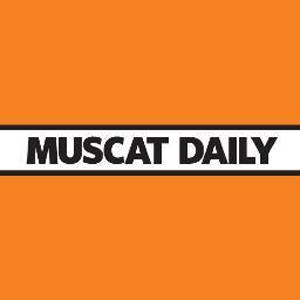Mogadishu market car bomb kills at least eight
"We have counted about eight civilians so far who were killed in the blast and more than 10 others wounded but the death toll could be higher because the area is a market and it was so densely populated when the blast occurred, most people who were wounded have serious injuries," said police official Ibrahim Mohamed.
Medical sources suggested nearly 30 people had been killed, but this was not confirmed by authorities."Our ambulances have collected 13 wounded civilians and 28 dead bodies, the toll could be higher because of the density of the location where the blast occurred," Dr Abdulkadir Abdirahman Adem, director of the AMIN ambulance service, told AFP.
The blast took place in the densely populated Afisiyone area in southern Mogadishu."There was chaos and severed dead bodies strewn around the street, the market was so busy with people shopping when the blast ripped through the area. I saw many dead bodies but I could not count, I have helped collect more than 10 of them," said Abdulahi Osman, who witnessed the blast.
- 'Both dead and injured' -Another witness, Ismail Mohamud told AFP: "I can't count all, but, I can tell that I have collected about 20 dead people with my hands, also, there have been other people collecting with me both dead and injured persons."
No group has yet claimed responsibility for the attack, but immediate suspicion fell on the Al-Qaeda linked Islamist Shabaab group, which is locked in battle with the Somali government and regularly mounts attacks in the city.Its most deadly recent attack was in August when a car bomb outside a popular hotel close to the presidential palace left 15 dead.
Despite being driven out of the capital in 2011 by an African Union force deployed in 2007, the group still controls vast swathes of outlying rural areas from which it launches guerrilla operations.Somalia is currently holding a drawn-out, limited election in which some 14,000 specially selected voters are picking 275 members of parliament who will later join senators in electing a president.
The country had been promised a one-person, one-vote election, however political infighting and insecurity led leaders to ditch the plan in favour of the current process.After the 1991 fall of strongman president Mohamed Siad Barre, warring clan militia plunged the country into decades of civil war and humanitarian crises, leaving it without a central government and the label of the world's foremost failed state.
An even more limited election in 2012 -- when MPs were nominated by 135 clan elders -- gave Somalia the first central government based in the country since the fall of Barre.

Legal Disclaimer:
MENAFN provides the
information “as is” without warranty of any kind. We do not accept
any responsibility or liability for the accuracy, content, images,
videos, licenses, completeness, legality, or reliability of the information
contained in this article. If you have any complaints or copyright
issues related to this article, kindly contact the provider above.
Most popular stories
Market Research

- Wiener Bank SE Partners With REAL Finance To Revolutionize Asset Management With Blockchain Technology
- B2PRIME Secures DFSA Licence To Operate From The DIFC, Setting A New Institutional Benchmark For MENA & Gulf Region
- Stonehaven Circle Marks 13Th Anniversary With Hadrian Colwyn Leading Calvio Ailegacyx Innovation
- Daytrading Publishes New Study On The Dangers Of AI Tools Used By Traders
- T-REX Launches Intelligence Layer To Fix Web3's Value Distribution Problem
- Bitget Launches PTBUSDT For Futures Trading And Bot Integration
















Comments
No comment